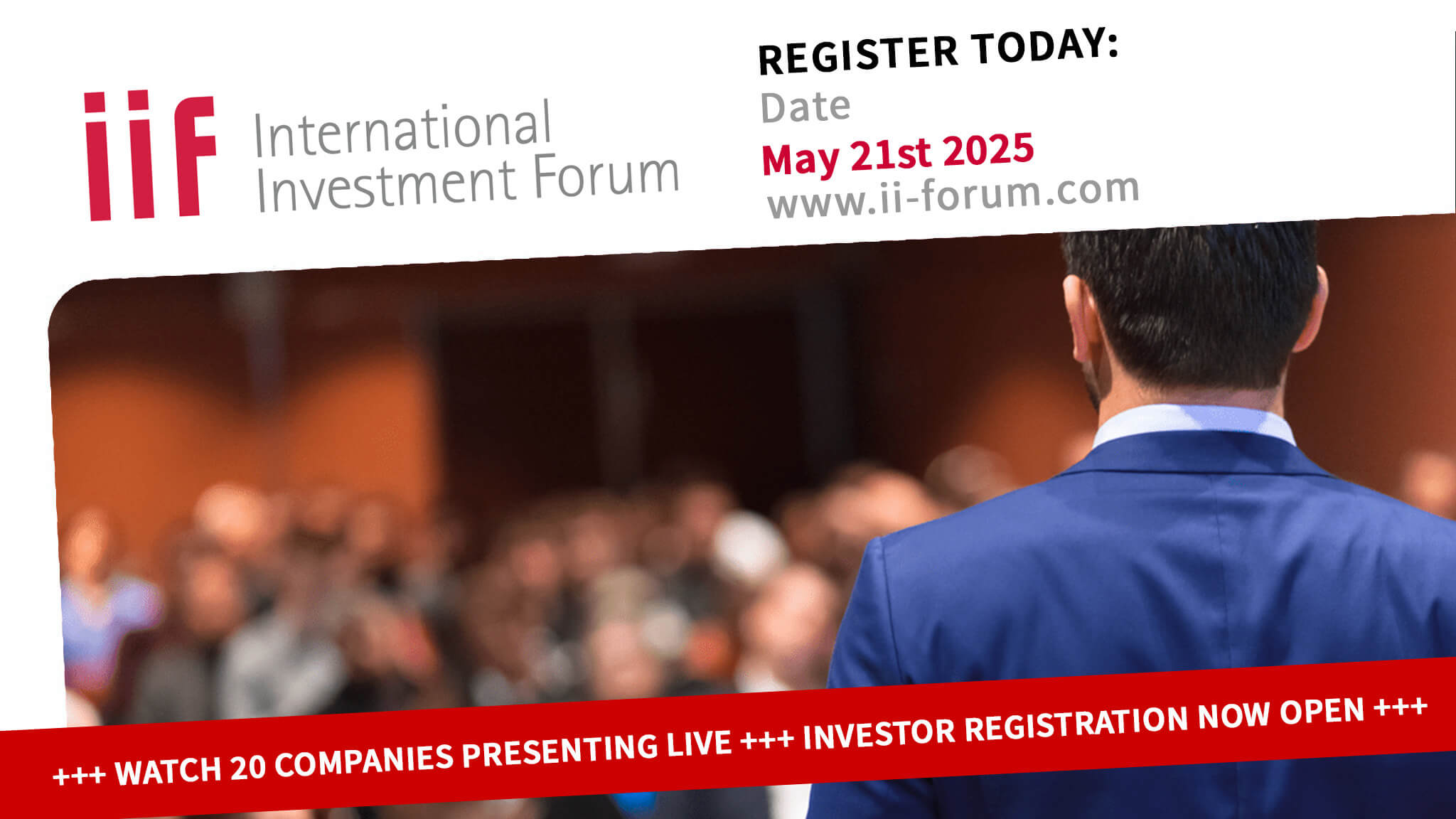May 13th, 2025 | 07:10 CEST
The fight against cancer as a billion-dollar opportunity: BioNTech, Merck, and Vidac Pharma
Cancer is the scourge of our time. However, significant progress has already been made in recent years. In addition to significantly improved traditional therapies, individualized treatment approaches such as immunotherapy are repeatedly proving successful in curing patients. This trend is set to continue. Experts such as the investors at Candriam and market researchers at Spherical Insights foresee enormous growth – the market for cancer drugs could see double-digit annual growth by the 2030s. Market leaders such as BioNTech and Merck, as well as insider tips like Vidac Pharma, stand to benefit.
time to read: 3 minutes
|
Author:
Nico Popp
ISIN:
BIONTECH SE SPON. ADRS 1 | US09075V1026 , MERCK KGAA O.N. | DE0006599905 , VIDAC PHARMA HOLDING PLC | GB00BM9XQ619
Table of contents:

"[...] Defence will continue to develop its Antibody Drug Conjugates "ADC" and its radiopharmaceuticals programs, which are currently two of the hottest products in demand in the pharma industries where significant consolidations and take-overs occurred. [...]" Sébastien Plouffe, CEO, Founder and Director, Defence Therapeutics Inc.
Author
Nico Popp
At home in Southern Germany, the passionate stock exchange expert has been accompanying the capital markets for about twenty years. With a soft spot for smaller companies, he is constantly on the lookout for exciting investment stories.
Tag cloud
Shares cloud
BioNTech and Merck are committed to the fight against cancer
Since the success of BioNTech, it has been clear that in biotechnology, even a single good product can take a company to new heights. Thanks to its expertise in mRNA technology, the Mainz-based company was ahead in the race to develop a coronavirus vaccine. But BioNTech's business model has even more to offer: In addition to mRNA, the Company is also focusing on antibodies, cell therapies, and combinatorial approaches. These methods are now primarily used in the fight against cancer: The Company is pursuing a pipeline of oncology candidates, including individualized cancer vaccines (personalized to the tumor antigens of individual patients), novel bispecific antibodies, cell therapies (CAR-T cells), and combination-based regimens. BioNTech operates partly independently and partly in cooperation with pharmaceutical partners such as Genentech and Roche.
Although the Company has provided insight into its research in recent weeks, it sees itself as being in a transitional phase. This initially involves investments in research and development. In 2024, the Mainz-based company invested around EUR 2.5 billion in its own research – given its liquid assets of more than EUR 15 billion, this approach seems reasonable. Merck in Darmstadt is investing roughly the same amount in the development of new active ingredients and processes. Unlike BioNTech, Merck is more broadly positioned and offers high-tech chemicals for the chip industry in addition to laboratory and pharmaceutical supplies. However, its core business remains the healthcare sector, where Merck specializes in the therapeutic areas of oncology, neurology, immunology, and fertility medicine.
Fight against cancer: Analysts see billion-dollar market continuing to grow
There are good reasons why almost all major companies in the pharmaceutical and biotech industries are focusing on cancer drugs. Analysts and market researchers agree that this area offers great growth potential. The asset management company Candriam expects annual growth in the cancer drug sector to rise from 15% to EUR 440 billion by 2028. This growth is expected to continue at a similar pace in the years that follow. "As the world's population ages and lifestyle-related diseases increase, demand for effective cancer therapies will continue to rise," the analysts say.
Vidac Pharma cuts off cancer cells' power supply – Top results with skin cancer cream
One company that could grow particularly dynamically due to its unique position is Vidac Pharma. Vidac's business model is based on a unique approach: reversing the Warburg effect. Cancer cells prefer to use glucose fermentation (Warburg effect) for energy, which leads to high glucose consumption and tumor growth. Vidac develops innovative active ingredients that detach the enzyme hexokinase-2 (HK2) from mitochondrial channels in order to normalize the degenerate metabolism of cancer cells. This blockade is intended to stop cell division and enable cell death to occur again. Vidac Pharma currently has two promising candidates – an ointment for skin cancer, which is in Phase 2 of clinical trials, and an active ingredient for solid tumors. The ointment for skin cancer in particular has shown impressive initial results: in an open-label study with patients with cutaneous T-cell lymphoma (CTCL stage I), the objective response rate was 56%. Complete remission was achieved in 22% of the subjects within eight weeks, and partial remission was observed in 34% of the study participants after eight to twelve weeks. All participants in the study remained progression-free for over four months, meaning that the cancer did not continue to grow.
Big opportunities with small stocks
While industry heavyweights such as BioNTech and Merck have well-developed business models with a variety of projects, Vidac Pharma is betting everything on its two drug candidates. For speculative investors, this could be an opportunity for above-average returns. The analysts at Sphene Capital already saw a target price of EUR 4.90 for Vidac's share price last fall. However, this is contingent on the successful approval of the cream for skin cancer. Investors must be aware of this risk. Recently, the three stocks have been moving in lockstep despite their differences: Over a six-month period, all three cancer hopefuls fell by around 15%. Recently, however, the mood has brightened. If more investors become aware of the potential of cancer drugs, prices for all industry players should rise again. The comeback could be particularly dynamic for smaller companies. Vidac Pharma is therefore an exciting candidate for the watch list.

Conflict of interest
Pursuant to §85 of the German Securities Trading Act (WpHG), we point out that Apaton Finance GmbH as well as partners, authors or employees of Apaton Finance GmbH (hereinafter referred to as "Relevant Persons") may hold shares or other financial instruments of the aforementioned companies in the future or may bet on rising or falling prices and thus a conflict of interest may arise in the future. The Relevant Persons reserve the right to buy or sell shares or other financial instruments of the Company at any time (hereinafter each a "Transaction"). Transactions may, under certain circumstances, influence the respective price of the shares or other financial instruments of the Company.
In addition, Apaton Finance GmbH is active in the context of the preparation and publication of the reporting in paid contractual relationships.
For this reason, there is a concrete conflict of interest.
The above information on existing conflicts of interest applies to all types and forms of publication used by Apaton Finance GmbH for publications on companies.
Risk notice
Apaton Finance GmbH offers editors, agencies and companies the opportunity to publish commentaries, interviews, summaries, news and the like on news.financial. These contents are exclusively for the information of the readers and do not represent any call to action or recommendations, neither explicitly nor implicitly they are to be understood as an assurance of possible price developments. The contents do not replace individual expert investment advice and do not constitute an offer to sell the discussed share(s) or other financial instruments, nor an invitation to buy or sell such.
The content is expressly not a financial analysis, but a journalistic or advertising text. Readers or users who make investment decisions or carry out transactions on the basis of the information provided here do so entirely at their own risk. No contractual relationship is established between Apaton Finance GmbH and its readers or the users of its offers, as our information only refers to the company and not to the investment decision of the reader or user.
The acquisition of financial instruments involves high risks, which can lead to the total loss of the invested capital. The information published by Apaton Finance GmbH and its authors is based on careful research. Nevertheless, no liability is assumed for financial losses or a content-related guarantee for the topicality, correctness, appropriateness and completeness of the content provided here. Please also note our Terms of use.




